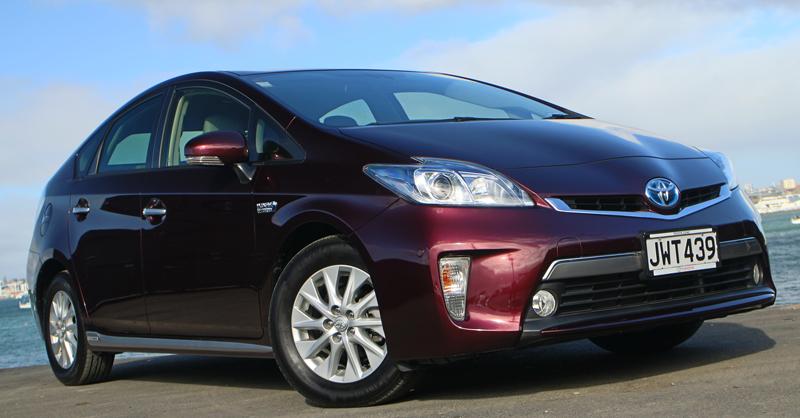Toyota joins the PHV race, but only with a Signature Class offering, reports Damien O’Carroll.
When Toyota first launched the Prius hybrid it was a game-changer. It shook up the car game and pushed many other manufacturers down the hybrid road.
Then Toyota pretty much ignored it. So why exactly would a generation-old Signature Class Japanese imported Prius be of any interest to anyone other than a taxi driver?
Well, this particular Prius is a bit different to the ones we are used to seeing here in New Zealand, because it has a plug.
That’s right, Toyota New Zealand are getting into the plug-in hybrid game by way of its used car Signature Class programme that sees ex-lease and selected Japanese imports being put through an extensive refurbishment at its Thames facility before being sold with a a three year warranty that also includes three years of free WoF checks and AA roadside assistance.
But for the Prius PHV Toyota have upped the standard Signature Class warranty to an impressive five years for all of that, including the battery.
To qualify for selection the Prius PHV has to be between two and four years old, with less than 25,000km own the clock and they retail for between $30,000 and $40,000.
While getting a near-new plug-in with a new car warranty sounds all very well and good, what is the Prius PHV actually like on the road?
Like a Prius, but better, would be the easy answer. With all the good and the bad that the phrase entails.
Depending on the conditions and how you drive, the PHV will get around 20km in pure EV mode (Toyota claims 26 on a 90 minute charge), but the batteries do seem to recharge fairly quickly when driving, so extending this to take in a daily commute is not all that hard.
Switching the PHV between EV and hybrid modes when cruising on the open road saw the best results, as the Prius will still try to default to pure EV mode when on the motorway where it is not at ist most efficient.
Still, that said, a week of normal driving around Auckland saw us end our time with the PHV sitting on an impressive 3.4L/100km – and this was purely urban driving (with a small amount of motorway crawling), remember, no long open road trips here.
While the PHV was, like every other Prius, not slightly interested in spirited driving, it was impressively comfortable and relatively well equipped for a car of a few years back.
The Toyota New Zealand-installed infotainment head unit was fiddly and awkward to use, but it sounded okay, while the rest of the interior was largely indistinguishable from a new car.
As a round-town commuter the PHV was impressive and surprisingly usable in EV mode, while also having the comforting back up of the petrol engine when the power runs out.
Our biggest criticism of the PHV would be the frequency that the petrol engine fires up even when its not actually supplying any motive power. It will fire up just to warm itself up, check in with you or just because, and it takes a bit away from the experience of cruising silently on electricity when the petrol engine clears its throat every so often.
_________
Specifications:
Body type Hatch
Drive FWD
Engine type Inline four-cylinder petrol/ electric hybrid
Engine capacity 1.8-litres
Max power 72kW @ 5200rpm (petrol engine)
Max torque 142Nm @ 4000rpm (petrol engine
l/100km (Combined) 2.1
C02 emissions 49g/km
Boot capacity 502 litres\
Spare tyre Inflator kit
ANCAP rating 5 stars
Price $30,000 - $40,000



